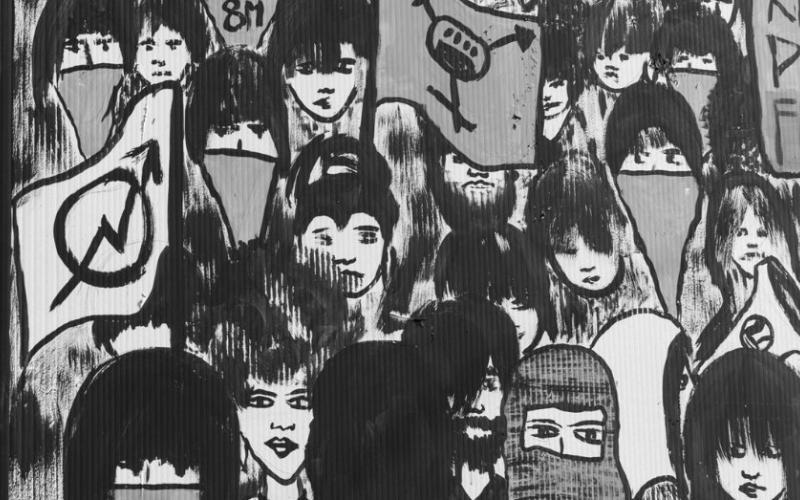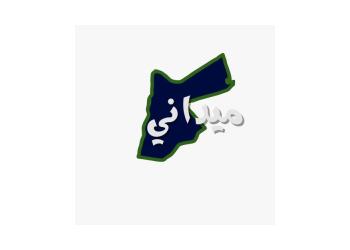Will Patriarchal rule work in the 21st century?

Jordanians are discussing lately an issue that it was thought the country has long bypassed. Despite the freedom, education, knowledge, and modernization that Jordan is experiencing, some are still insisting on a patriarchal way of thinking that has become obsolete.
Patriarchal rule is described as a social way in which men dominate women and the term is taken from the English word patriarchy and from the Greek work patriarches which means the rule of older men and it includes male heads of families, tribes, and churches.
Most societies today have shed off their patriarchal ways. Women have a bigger role than in the past although that is not enough. Male heads of families and tribes have also retracted. But it seems that the Church patriarchal rule is still dominant in some areas. Some in Jordan (and I stress some) don’t seem to be able to shed this patriarchal way and we are facing, especially in Christian circles, an attempt to return to this dominant format.
Some might argue that this kind of dominance exists in other religions. Yes, that is true but the purpose of this column is the effects of the patriarchal rule in a modern civilized country like Jordan.
Some insist that all churches follow this patriarchal way ignoring centuries of division and church reform in the middle ages. Those churches which don’t accept that are being attacked because of applying decentralized ways of governance.
This is what was seen in a recent article by a well-respected Christian personality in Jordan criticized the absence of a patriarchal hierarchy calling them churches that are “run without religious or administrative references but only run by a board or a church council.”
The problem is that in Jordan like in all other Middle East countries, citizens are obliged to follow a religious order based on their birth? A Christian is obliged to follow the ecclesiastical courts of his family’s particular church even if he or she doesn’t follow that particular church or worship with it.
Despite the great advancements in scientific thinking and ideological thought as well as political reform that saw Jordan turn to a democratic administration in 1989, we are still seeing religious denomination trying to force everyone to obey it. This is strange because it comes at the same time that His Majesty the King has called for the civil state that deals with all citizens equally by means of a civilian law and civilian courts. Until we reach that goal we should not go backward.
The heads of one of the Christian denominations in Jordan which follows the evangelical theology (abides by strict biblical interpretation) have in the past avoided dealing with governmental issues. Since the beginning of the 20th century church leaders have followed the biblical command “give to Caesar what belongs to Caesar, and give to God what belongs to God.”
And since evangelical churches reject the idea of divorce, their only demand of the Jordanian government when it comes to issues of the personal state were the right to officiate marriages of their members. This is what has happened and continues to take place until now. The government has allowed and has duly registered all marriages carried out at evangelical churches in all official registries.
Naturally, while the idea of opposing divorce has biblical bases, there have been cases in which a couple which married officially at an Evangelical church decide to divorce. Since the government of Jordan has not granted evangelical the right to set up their own ecclesiastical courts, these couples have followed the law which allows them to divorce in civilian courts. This has caused consternation to traditional churches that follow the patriarchal system and their religious and civilian leaders have come out in a strong way demanding that their ecclesiastical courts or ecclesiastical courts they choose should be the ones dealing with such cases even though they are not members of those churches.
The Jordanian government over the years has allowed without any clear criteria some churches to be listed in the amended Christian denominations law #28 of the year 2014 while denying others. As a result, some of these churches with a tiny membership have been allowed to set up their own ecclesiastical court while others with thousands of members and who have been allowed to work in Jordan for decades were denied.
About a little more than a year ago, for example, Jordan permitted the Assyrian Orthodox Church to set up its own ecclesiastical court. Petra News agency said that a royal decree allowed the establishment of this court even though the Jordan Evangelical Council which has thousand of members and which has been asking for this right to adjudicate personal status cases of its members have been denied.
Evangelical churches in Jordan work in a legal way and its compatriots in Syria, Lebanon, and Egypt have ecclesiastical churches with government approval. In Palestine, Palestinian President Mahmoud Abbas issued a presidential decree in December 2019 recognizes Palestinian evangelicals.
The very same person attacking evangelical insists that they have no right to have their own court. “All those who claim to be from born again churches and are asking for a right that is not their right are in fact Christian member of recognized churches and if you follow their birth and marriage certificates you will see that but they are demanding to be recognized as a legitimate denomination.”
What is wrong with that? Do leaders of historic churches want to bring us back to the middle ages in which one church dominates the lives of people? It would be best if citizens can solve their personal status issues using civilian court but until this right is reached there should be ecclesiastical courts to all denominations.
At the same time, there is a sinister attempt to question the nationalism of followers of these churches who are not allowed to set up ecclesiastical courts. The Jordan Evangelical Council which is an umbrella of five churches and which provides spiritual and humanitarian services has clear national positions. Leaders of these churches have repeatedly supported the Hashemite custodianship of holy places in Jerusalem and have denounced Christian Zionism. Many Jordanian evangelicals have high positions in the government, parliament, and in the army. Why does the government tolerate them if they are “agents with their own agendas whose aim is to shake the stability and community security?”
The Jordanian constitution has guaranteed the rights of all citizens without discrimination based on religion or thought. The government must respect that and must provide for thousands of loyal Jordanians who find themselves outside the preview of a legal umbrella that can help them deal with personal status issues.












































